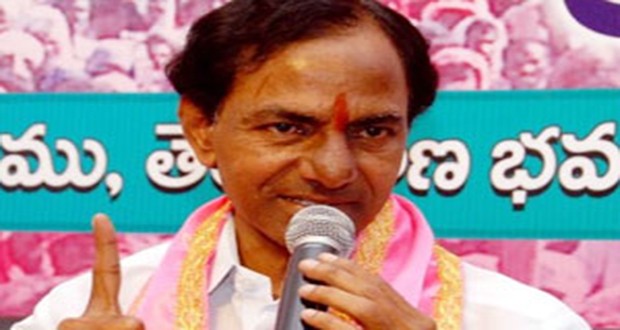
Gaddar says he has reasons to be peeved with KCR. In April 1997, Gaddar was shot at by three unknown assailants at his house in Hyderabad, with one bullet still lodged inside his spine. The poet has always maintained that it was an attack sponsored by the Andhra police, to convey a message to the outlaws that they could target their most high-profile sympathiser, a charge the cops denied. More than two decades later, Gaddar says not a single arrest has been made in the case.
Earlier this year, Gaddar's wife wrote to the President of India seeking a CBI probe into the assassination attempt. Rashtrapati Bhavan forwarded the letter to the Prime Minister's Office which further sent it to the Telangana government. Three months ago, Gaddar wrote a separate letter to KCR, seeking time to explain his case.
“I, along with everyone, fought to get Telangana state and handed it over to KCR. He owes his chair to all of us. Yet he cannot give me five minutes time. He is not accessible to anyone. We have to ask him what he did. When Sant Kabir and Sant Tukaram could question God, can't I question KCR," says Gaddar.
Gaddar who was part of the Jana Natya Mandali, formed in the early 1970s, emerged as the voice of the socially marginalised classes and those in agrarian distress in the times that the Naxal movement was gaining strength. Travelling shirtless with just a sheepwool blanket on his shoulder, Gaddar would hold a stick tied with a red flag and anklet bells and with his street performances with song and dance and drumbeat, articulate about caste oppression in Telangana. With the Naxals looking to exploit the pain of the victims of oppression, Gaddar's lyrics like “Podamuro Janasena lo kalisi, podamuro errasenalo kalisi (Let us join the people's army, let us join the Red army)” spurred aggrieved youth to join the movement and pick up the gun.
In no time, Gaddar acquired cult status. He even went underground in the 1980s. After differences cropped up with the People's War, the Naxal leadership suspended him from the party in the 90s but chose him as its emissary in 2002 for preparing the path for peace talks with the then Chandrababu Naidu government in Andhra Pradesh.
The man who endorsed the power of the gun now says fear is a constant. Threatening letters frequently arrive by post, he says, the last one around the time five activists were arrested and labelled as ‘urban Naxals’. Phone calls from private numbers threaten Gaddar with death, specifying the date and time of killing. Gaddar claims cops in plainclothes keep an eye on his residence.
“And the men who shot at me are still roaming around freely,” he says.
But will he manage to contest against KCR as a joint opposition candidate since the Congress party's Prathap Reddy has already begun campaigning? “It is their wish. Why should I appeal to them?” asks Gaddar.
During the struggle for a separate Telangana, Gaddar had also articulated that the fight should not be merely for statehood. It should also be for a more equitable society.
“At that time, I kept saying that formation of a new state should not only mean replacing Reddy community rule by Velama community rule. I am vindicated seeing what is happening today under KCR. In the fight between the two tigers, the goats are getting sacrificed. Four years after Telangana, I feel our sacrifice has been undermined. As a poet, I now want to represent the people,” he says.
Gaddar who formally severed his relationship with the Maoist party in 2017, will make his foray into active politics at a time when the national discourse has introduced a new term into the lexicon—‘urban Naxals'. Does he see himself as one?
“There is no urban Naxal, forest Naxal or village Naxal. A Naxal is a Naxal. A former DGP said about me that even though I carry no weapons, I am mentally armed, that I provoke people to pick up the gun with my songs. My advice to such people is to read the Bhagvad Gita because Lord Krishna also was mentally armed,” says Gaddar.
With the recent killings of two Telugu Desam Party (DP) leaders in Araku, one of them an MLA, it is possible that the narrative of a former Naxalite entering the mainstream will gain currency. While choosing to sidestep the Araku assassination, Gaddar prefers to talk of the need to build a bridge with the Maoists, where both the government and the CPI (Maoist) are honest about the effort.
The balladeer who won a Nandi state award for the best male playback singer in 2011 for the song ‘Podustunna Poddumeeda' from the film ‘Jai Bolo Telangana’, knows that with elections in Telangana a couple of months away, his songs will be his campaign slogans. Gaddar breaks into one of his popular songs in Hindi—“Aag hai yeh aag hai, yeh bhooke pet ke aag hai' (This is the fire of an empty stomach).” It is also his way of letting the people of Gajwel and Telangana know that he has enough fire in the belly.


.jpeg)

